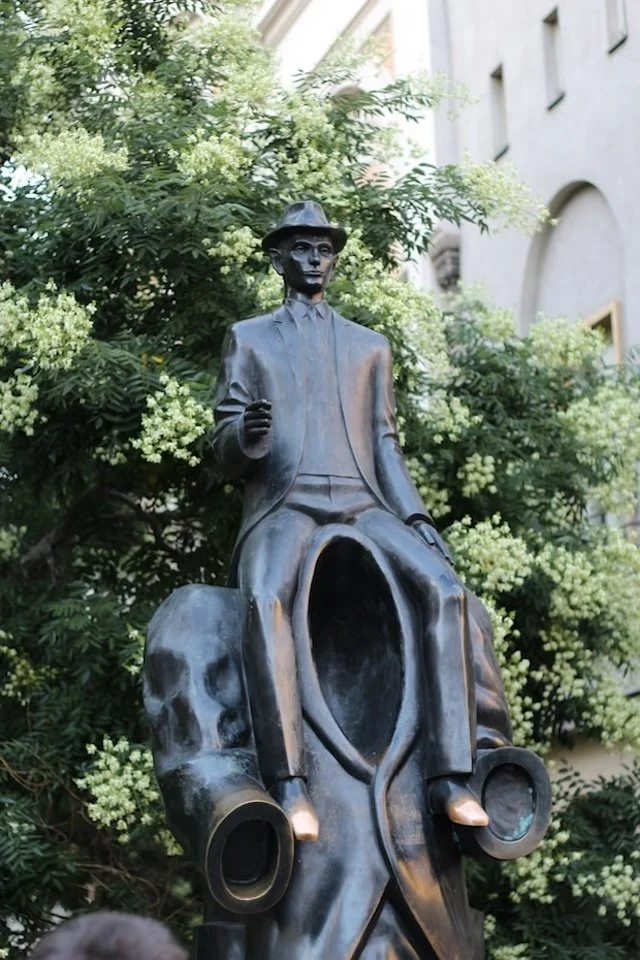Three Cheers for Sally Kornbluth: Academic Freedom and Scientific Truth
Sally Kornbluth, 2023. Photo from MIT Media Library, via Wikimedia Commons
Last week Sally Kornbluth, president of the Massachusetts Institute of Technology, announced that M.I.T. has rejected the so-called “Compact for Academic Excellence in Higher Education.” The Trump administration offered the compact to nine universities, hoping they’d accept intrusive controls in exchange for future federal research funding. As the New York Times reported, Dr. Kornbluth told Trump that the premise of this compact is “inconsistent with our core belief that scientific funding should be based on scientific merit alone” (and not on adherence to an ideologically motivated agenda).
Three cheers for Sally Kornbluth! We can only hope the other eight targeted universities will be similarly forthright and courageous. For the future of American universities as independent centers in civil society for scientific truth is at stake—science in a broad sense that includes all academic disciplines (mathematics, natural sciences, social sciences, and humanities). Let me lay out why their independence matters.
Science as a Social Domain of Truth
My previous blog post, titled Public Ambivalence and Scientific Truth, characterizes science as one social domain of truth among many. It also describes scientific truth as a dynamic correlation between theoretical validity and evidence-based accuracy, the results of which are to be confirmed in scientific practice. What does it mean to call science a social domain of truth? And what implications flow from this for the role of science in society?
Allegory of truth, in the Summer Garden in Saint Petersburg. Photo by Wolfgang Moroder, via Wikimedia Commons
The term social domain of truth pertains to how interpersonal relations, cultural practices, and social institutions configure social life, and which societal principles obtain for life within specific configurations. The primary social domains of truth, including science, politics, art, and religion, emerge and change historically. None of them, not even science, is normatively more decisive than others for the unfolding of truth as a whole.
As a social domain of truth, science is a specific constellation of social patterns and societal principles within which we can attain a certain sort of insight. Factors like new technologies, political and economic pressures, or identity-based struggles for recognition—although relevant for the role of science in society—are not the primary ways in which science is a social domain of truth.
To call science a social domain, then, is to say it’s an independent or autonomous branch of knowledge with its own legitimate task. But the autonomy of science is relational: science has its own legitimate task in relation to other social domains and by virtue of various institutional interrelations. Such legitimacy-in-relation involves both internal autonomy in how science works and societal autonomy in how the institutions of science relate to other social institutions.
Legitimacy-in-Relation
Let me focus first on internal autonomy. What is the legitimate task of science in distinction from other domains? And which domain-specific contributions can science make to truth as a whole? My previous post characterizes scientific truth as a dynamic correlation between being faithful to the societal principle of theoretical validity and pursuing the evidence-based accuracy about investigatively staged objects. It is in carrying out this specific correlation that science has its distinctive task in society and makes its own contributions to truth as a whole.
Photo by Roy Wen on Unsplash
It's not hard to see that this task is distinctive. But what makes the task of pursuing scientific truth legitimate? Such legitimacy does not come from the technological “applications” or economic “payoffs” or political “advantages” that might accompany this pursuit. Rather, the pursuit of scientific truth is socially legitimate insofar as it arises from the ordinary practices and results of propositional truth and modifies them. The truth that science pursues takes the ordinary correlation of inferential validity and propositional accuracy to a new level of precision and scope, a level that’s otherwise unavailable in daily life.
If science loses touch with its grounding in ordinary propositional knowledge, the pursuit of scientific truth loses its social legitimacy. But if scientific inquiry is done well, and if its results become publicly available in the right way, it can enhance the reliability of our beliefs and the correctness of our assertions. In other words, it can enrich and strengthen the pursuit of propositional truth in ordinary social life. That’s the key to science’s social legitimacy.
None of this happens without conflict, of course. In societies where science has become a prominent social domain of truth, there’s continual pressure either to dismiss scientific findings because they challenge accepted beliefs or to reject ordinary beliefs because they’re not scientific. Such struggles over the legitimacy of science are, I think, not only unavoidable but also potentially beneficial. For the pursuit of scientific truth both arises from and significantly differs from the ordinary pursuit of propositional truth.
Distinctive Contributions
Illustration of SARS-Cov-2 coronavirus. Photo by CDC on Unsplash
Science’s heightening of precision and scope helps explain the distinctive contributions it can make. Consider, for example, the complex field of health care. The COVID-19 pandemic in 2020–2022 made many of us acutely aware of how much adequate health care depends on scientifically informed expertise. Perhaps this was most obvious in the development and delivery of effective new vaccines. But it also showed up in statistical tracking of cases and trends; continually updated recommendations for hygienic practices; and the development of new platforms for communication like Zoom. Equally important were historical studies that uncovered precedents and exceptions to contemporary life under pandemic conditions; social-psychological investigations of isolation, grief, and loss; and crossdisciplinary interrogations of the patterns of racism that show up as inequities in access to adequate health care.
Although we can’t ignore the highly politicized rejection of scientific expertise by surprisingly many, especially in the United States, it’s indeed remarkable how much adequate health care depends on such expertise across many academic disciplines. That’s why science’s heightening of precision and scope matters. By itself, pursuing scientific truth does not “solve” any of these “problems.” But without it, we’d have more difficulty pursuing truth in other social domains.
Indeed, the pursuit of scientific truth can help refine and expand correlations between fidelity and disclosure in other social domains. That, in turn, enables a society to consider new visions of what society needs and what truth as a whole might require.
Societal Autonomy
Photo by Vardan Papikyan on Unsplash
The pursuit of scientific truth would not be societally important if it occurred in a vacuum. Not only must other social domains lend support, but also other social institutions must not distort or derail this pursuit. Conversely, the pursuit of scientific truth also should not come at the expense of other types of truth, and science-related institutions should not lose sight of the central task that gives science social legitimacy. In other words, the internal autonomy of science depends on its societal autonomy, just as the societal autonomy of science presupposes its internal autonomy.
The societal autonomy of science refers to its having the requisite mixture of independence and interdependence with respect to other social domains and social institutions. Today, the primary threats to science’s societal autonomy come from how two macrostructural systems impinge on the institutions of science and how such institutions feed into these systems. To keep this topic manageable, let me focus on the university as a center in civil society for science-related education, research, and communication. I’ll leave aside other science-related organizations such as commercial research, government science agencies, and independent think tanks.
Global Capitalism and the Administrative State
As I’ve explained in my book Art in Public (pp. 89-203), two large systems govern much of social life in contemporary society. One is the proprietary economic system of global digital capitalism. (I’ve discussed digital capitalism in previous posts on higher education, democracy, work, ecology, and friendship.) The other is the political system known as the administrative state. (I’ve also considered questions about the administrative state and authoritarian populist attacks on it in a previous post.)
Statue of Franz Kafka by Jaroslav Róna in Prague. Photo by Rocío Perera on Unsplash
On my diagnosis, these two pervasive systems are both structurally problematic and normatively deficient. They are structurally problematic because they tend to dominate other social institutions and undermine their potential contributions to social life. Jürgen Habermas’s Theory of Communicative Action calls this tendency the “colonization of the lifeworld.”
The dominant economic and political systems are also normatively deficient. Whereas, in my view, the proper task of a modern economy is to carefully steward all of Earth’s potentials for the sake of interconnected flourishing, the global capitalist economy thrives on exploiting such potentials for private profit. This economic distortion of the societal principle of resourcefulness or stewardship simultaneously undermines the pursuit of solidarity and justice in other social institutions.
Similarly, whereas the proper task of constitutionally democratic governments is to secure and maintain public justice among the individuals, communities, and institutions within their jurisdictions, the administrative state system thrives on harnessing this task to the pursuit of political power and bureaucratic control. This political distortion of the societal principle of justice simultaneously reinforces capitalism’s economic distortion of resourcefulness and undermines the pursuit of solidarity in other social institutions.
Universities Are Vulnerable
As centers for education, research, and communication, universities as such are not primarily economic or political institutions. Nor is it their task simply to maintain and further the capitalist and administrative-state systems. Nevertheless, universities do unavoidably have economic and political dimensions, and to pursue their missions they must rely on the operations of economic and political systems.
Photo by Matt Pictures on Unsplash
That makes universities just as susceptible to the structural problems and normative distortions of digital capitalism and the administrative state as not-for-profit organizations are in health care and the arts. Moreover, as we’ve learned again since January 2025, because universities must rely on the political system, they’re also exposed to direct manipulation by ideologically motivated power-players who control the levers of the administrative state.
Consequently, universities are highly vulnerable to both economic and political pressures. And that jeopardizes their future as independent centers in civil society for the pursuit of scientific truth, putting all academic freedom at risk. My next blog post will take a closer look at those pressures and suggest ways to resist them. Nothing less is required if we genuinely care about truth.
Note: I notify a list of readers when a new blog post is published. If you are not on that list and wish to join us, please let me know via the Contact button at the top of this page.






